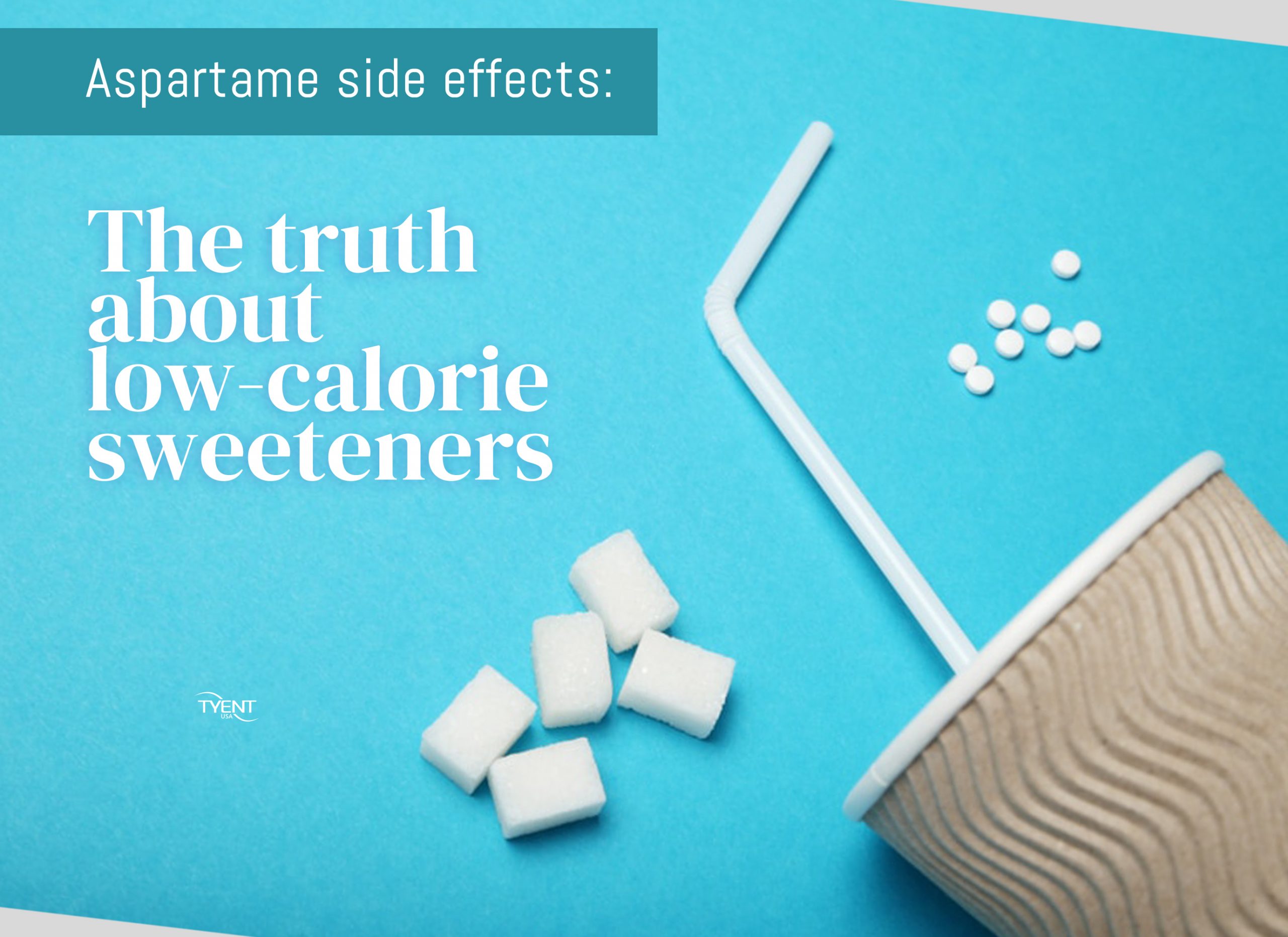Aspartame is the sweetener found in many of the brands of soda, gum and foods frequently labeled ‘sugar-free’ or ‘reduced sugar,’ including big names such as Diet Coke.

Why Aspartame Has Scientists Worried
Discovered accidentally in 1965 by a chemist licking a finger during his research, aspartame hasn’t yet been banned, but plenty of scientists and doctors have expressed grave concerns about the super-sweet additive.
In June 2023, observational studies on human subjects recorded results showing an association between aspartame and several types of cancer. However, aspartame avoided being labeled at that time as a known carcinogen but was classified by the International Agency for Research on Cancer (IARC) as a Group 2B substance: “possibly carcinogenic to humans.”
Side Effects of Aspartame
For now, aspartame remains in soda and food, and it’s not just the possible cancer association that you should be aware of. Aspartame is linked to a list of side effects and is believed to cause or contribute to a list of conditions, including the following:
- Convulsions
- Psychiatric conditions
- Depression
- Diabetes mellitus
- Hyperthyroidism
- Arthritis
- Headaches
- Hypertension
Aspartame & Hormone Disruption
That’s not all. Aspartame is also under the microscope – literally and metaphorically – because it is also associated with hormone disruption. Extensive research published in 2021 referenced studies of girls aged 9–10 and the possible link between the consumption of aspartame and the increased risk of early first menstruation. There are also reported cases of premature births and accelerated weight gain in newborn babies linked to aspartame.
Further research links aspartame consumed during pregnancy with autism in children. Scientists agree that urgent research into a causal link is needed, but their work already suggests that there is a threefold increase in autism risk for boys born to mothers who consume aspartame on a daily basis while pregnant, or during breastfeeding.
“Aspartame consumption can cause mood disorders, mental stress, and depression. Maternal absorption of aspartame during pregnancy correlates with autism in children. Long-term aspartame use influences the cerebral and cerebellar cortex: it can cause neurodegeneration, modify the functions of neuronal cells, interrupt homeostasis, learning and memory.”
Czarnecka K & Others – Aspartame-True or False? 2021 Jun 7;13(6):1957
Nothing to See Here?
It’s hard to see and hear all these red flags and not wonder how on Earth this stuff is allowed near our food and drink. However, despite the WHO’s findings, the official line from the FDA remains an anodyne “… aspartame is safe for the general population when made under good manufacturing practices and used under the approved conditions of use.”
The FDA’s ‘nothing to see here’ position doesn’t exactly feel like a safety net, when scientists are urging swift and conclusive research in the other areas of health that they believe might be negatively impacted by aspartame, but need more investigation, including:
- Genotoxicity
- Obesity
- Neurotransmission
- Allergies
- Neurodegeneration
- Behavioral disorders
- Fetal impact
- Skin problems
It’s all serious stuff, and the message must be that cutting down or cutting out the amount of aspartame you consume is likely to be a positive move.
The Healthful Alternative to Soda
Tyent Ionized Alkaline Water makes a refreshing, invigorating, healthful and delicious alternative to aspartame-laced soda. Tyent Water is filtered, pure and packed with powerful antioxidants and energy-boosting molecular hydrogen in every glass. Even better? It’s all-natural, supports good health and makes you feel great.
Want to learn more? Click on our FREE eBook!









